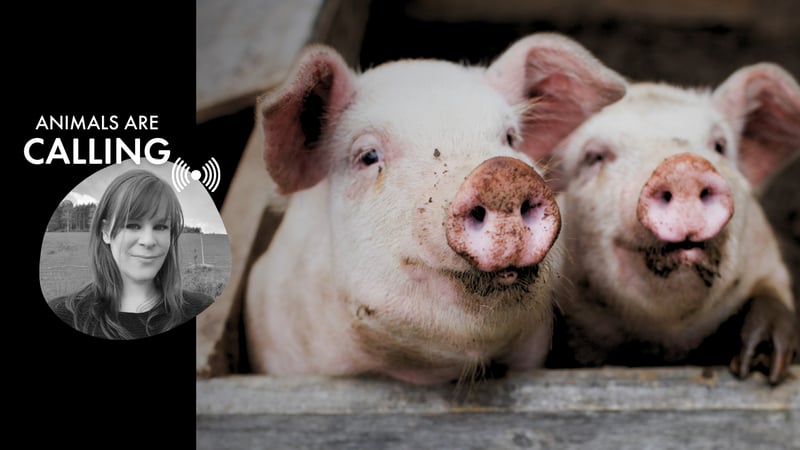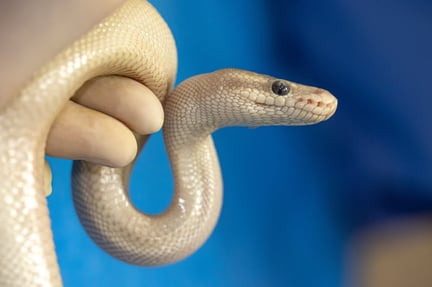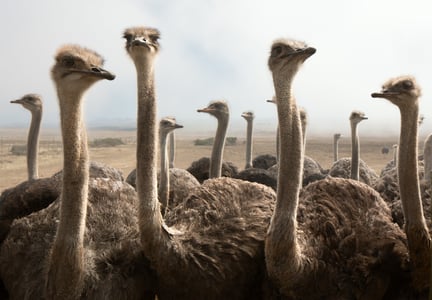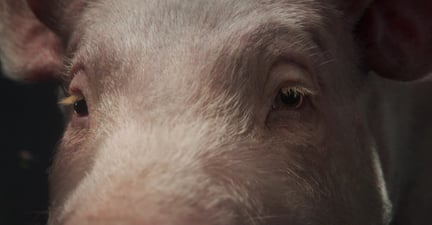
Q&A: Can understanding sentience in animals improve their welfare?
Blog
In this Q&A, we examine the evidence for sentience in animals and explore what it means for our relationship with them.
- This Q&A is taken from the World Animal Protection podcast, Animals are Calling, hosted by John Bunyan
- Within this episode, we explore sentience in animals by speaking to Dr Helen Lambert, a scientist specialising in the field.
- We discuss how we can reassess our relationship with animals to respect them as sentient individuals.
- Rather listen? Join us on your preferred podcast host.
Firstly, what do we mean by animal sentience?
Sentience in animals refers to their capacity to feel, whether that's emotions, states, or experiences. Sentience can encompass both positive and negative emotions and even complex feelings such as grief or empathy.
This seems like a new and radical idea. Is it?
Our understanding that animals can feel isn't new.
In 1789, English philosopher Jeremy Bentham wrote: The question is not can they reason? Nor can they talk, but can they suffer? Why should the law refuse its protection to any sensitive being?
Bentham wasn’t alone. Charles Darwin shared this understanding that animals experience emotions. However, it wasn’t until the 1960s that the UK government responded to concerns about the suffering caused by intensive farming methods and put legal protections in place to protect animals.
How can understanding animal sentience improve animal welfare?
As researchers and animal welfare specialists, we can use our knowledge of sentience to select the right enrichments for captive animals and give them a life in captivity that is more natural, as it were.
But we can also misunderstand sentience in animals. We can think animals are feeling pleasure and joy in human interactions when they're not. For example, people always think dolphins are happy because they look like they’re smiling. When you understand sentience, there's nothing about life in captivity that a dolphin's going to enjoy.
Just like humans in a job they don’t enjoy, they might find some positive moments, but they're not ultimately happy, as they would be in the wild.
Why do people misunderstand or disregard animal sentience?
There’s an idea in psychology known as the “teddy bear effect”. This is about how we respond to ‘cute’ animals such as dogs who have round, fluffy faces. As humans, we relate to animals with those features, so it’s easy for us to see sentience in our pets, for example.
It can be more uncomfortable to recognise sentience in other animals, especially those bred for meat. We might have two conflicting beliefs, such as “animals feel pain” and “I want a beef burger.” So, we ignore sentience where it’s inconvenient.
What can I do differently now that I know about animal sentience?
This comes down to the choices we make. For example, if you're going on holiday, avoid participating in activities involving animal tourism, like using a monkey as a photo prop on a beach, riding elephants, or visiting tiger cub petting facilities.
Being aware of those aspects and making choices in terms of farmed animals is also important. Try to reduce your reliance on animal products and support
Educating yourself on labelling is also crucial because marketing is very clever. It might use terms like "farm fresh" or "farm ready," which can be confusing. If you choose organic, look for certifications like the Soil Association standards.
How can policy and legislation improve animal welfare?
The European Commission is using science to transform the legislation protecting farmed animals. It’s important to work with farms, showing how we can improve measures and explain what the regulations are designed to achieve.
With wild animals, it’s all about explaining the problems and trying to change people’s behaviour. For example, we need to show people that elephants suffer in captivity in a way that makes them actually want to stop riding captive elephants.
But welfare is about more than just freedom from cruelty; it's also about the opportunity for positive emotion. Adequate welfare can’t be achieved without considering positive emotions.
Don't miss the full episode
In this full episode of Animals are Calling, you'll hear from Henry Mance, author and Chief Features Editor at the Financial Times, who shares his insights on how understanding the intelligence and emotions of pigs could reshape the future of factory farming. You'll also hear from Laurence Candy, a former beef and dairy farmer, who reveals how connecting with animals and nature led him to transition away from livestock farming towards sustainable plant-based agriculture.
To learn more, download the episode and dive deeper into the crutial conversation of animal sentience.
Animal sentience news & blogs
-
14 interesting facts about pythons
Blog
Discover the most interesting facts about pythons. We share python facts about their size, behaviour, habitat, threats, and...
-
14 Wonderful & Weird Ostrich Facts
Blog
Discover top ostrich facts as we answer your burning questions, including what do ostriches eat, how fast can...
-
Outrage as 246 pilot whales killed in bloody Faroe...
News
A brutal whale hunt in the Faroe Islands leaves 246 dead. We are demanding an immediate end to...
-
Facebook exposed as top platform for animal cruelty
News
Meta platforms are responsible for the majority of reported online animal abuse.





